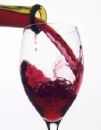
London: Many people enjoy drinking alcohol and then exercise the following day quite comfortably. While this fact sheet outlines the impact that alcohol can have on the bodys performance during exercise, it is not designed to persuade people to change their exercising habits. It is intended to help you understand why you may not perform at your best after drinking.
Key facts from the UK Government’s Know Your Own Limits Campaign
Alcohol can affect your sport and exercise performance in two main ways, due to the effect of alcohol or its breakdown products in your body after drinking, or indirectly because of the effects of alcohol on your sleep, diet, level of dehydration etc, which can also affect your performance and efficient recovery from exercise. Below we have collected key facts from a range of authorities on the subject*:
If you have alcohol 24 hours before exercising you are more likely to develop muscle cramps.
Alcohol affects the body’s ability to create energy therefore it slows down reaction times, increases body heat loss and reduces endurance.
After exercising the body needs to be rehydrated. It’s not helpful to drink only alcohol as it will continue to dehydrate the body further.
If you sustain injury while exercising, and you have had alcohol the night before, or drink any alcohol afterwards [while injured], you are likely to increase your recovery time.
People often reach for vitamin B on the morning after night out. But even small amounts of alcohol reduce the bodys ability to absorb vitamins and minerals that are essential for converting food to energy, and helping repair body tissue after injury.
Alcohol and injuries
If you sustain an injury while alcohol is still in the bloodstream, even from the night before, the recovery time from the injury will increase.
· If you drink alcohol after sustaining a soft tissue injury, it may take longer to repair. This relates to two key factors:
· increased muscle swelling alcohol dilates and relaxes blood vessels which increases muscle blood flow, hence the swelling
1 alcohol can mask the pain and severity of an injury, encouraging over-use
If you have been injured, avoid alcohol and seek medical treatment. RICE (Rest, Ice, Compression and Elevation) is the best way to reduce swelling and speed recovery.
How alcohol affects you and sport
Speed: alcohol affects you even after you’ve finished drinking. Alcohol affects the central nervous system and slows down the information processing ability of the brain. This in turn slows down your reaction time, hand-eye coordination, accuracy and balance. Even a couple of drinks can affect your performance and perception.
Energy and stamina: the blood sugar that your body needs for energy is produced by your liver when it releases glucose into the blood stream. Alcohol keeps the liver too busy to produce this sugar efficiently. All of this means you have less energy and lower stamina.
No matter how much training and conditioning youve put in, a few drinks the night before can really take the edge off your fitness. When it is time to really dig deep, there might not be anything there.
Cramps: while exercising, your muscles burn up glucose, producing lactic acid as a waste product. Too much lactic acid leads to muscle fatigue and cramps. Alcohol that remains in your system contributes to greater build up of lactic acid. Therefore your risk of cramping up increases dramatically.
Dehydration: the dry horrors is the term used to describe an extreme symptom of alcohols diuretic (increased urination) effect. This extra fluid loss added to what you sweat out, means the risk of dehydration increases.
Performance: when you combine the effects of lactic acid build up, dehydration, and the body converting food to energy less efficiently, your aerobic performance is greatly reduced.
Alcohol and your muscles
Few people realise that consuming alcohol after a workout, practice, or competition can cancel out any physiological gains you might have received from such activities because:
short-term alcohol use can impede muscle growth; long-term alcohol use diminishes protein synthesis resulting in a decrease in muscle build-up.
In order to build bigger and stronger muscles, your body needs sleep to repair itself after workouts, and alcohol is widely known to upset sleeping patterns.
* The authorities information hasnt been factually verified by Department of Health, but we acknowledge that it represents sensible advice

